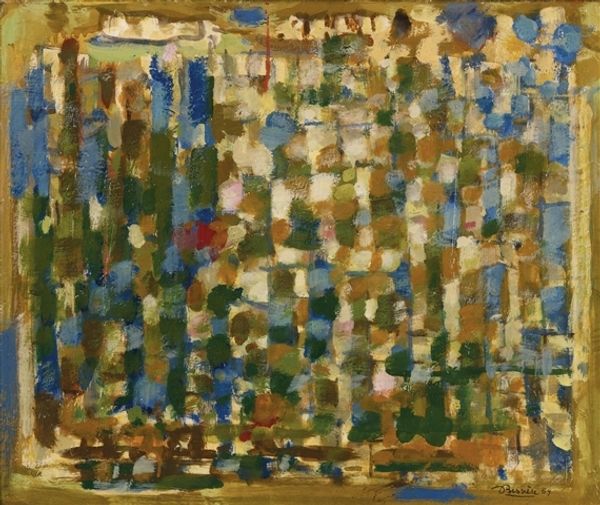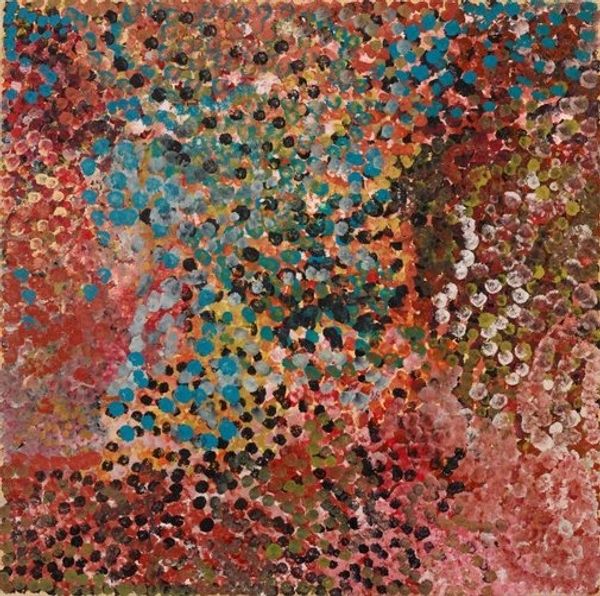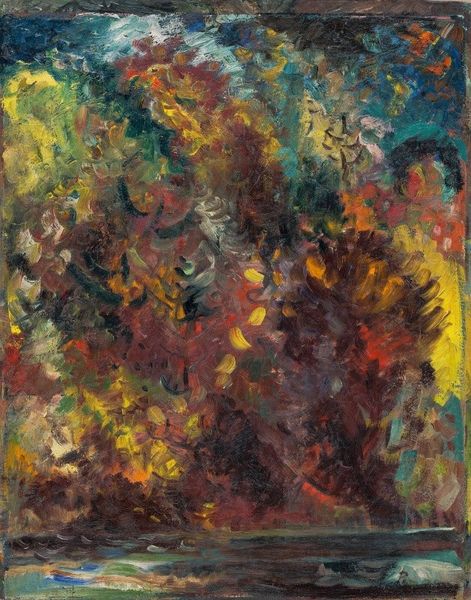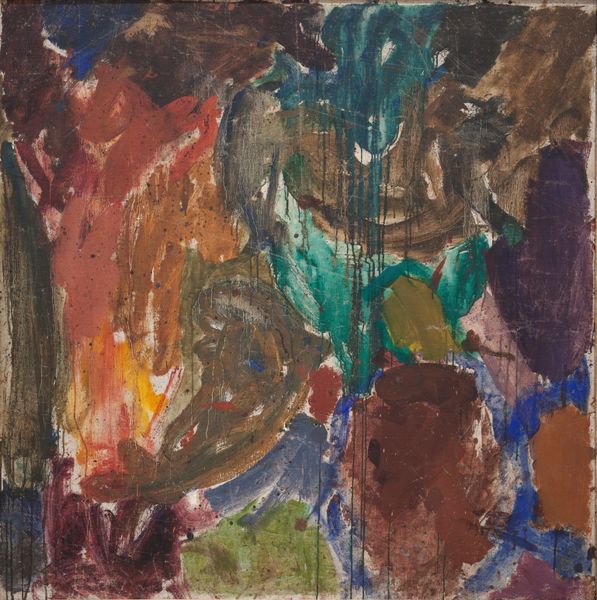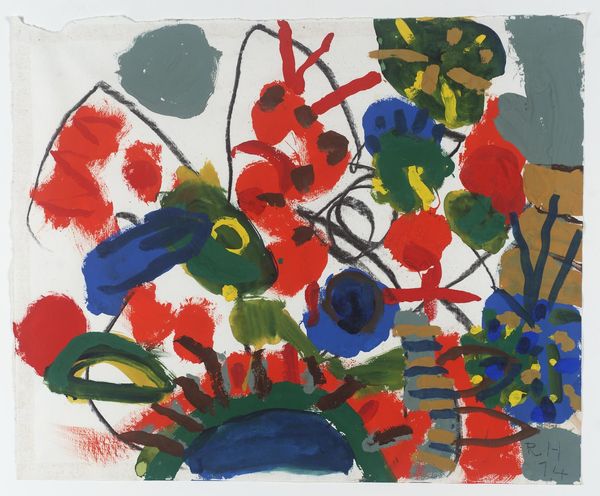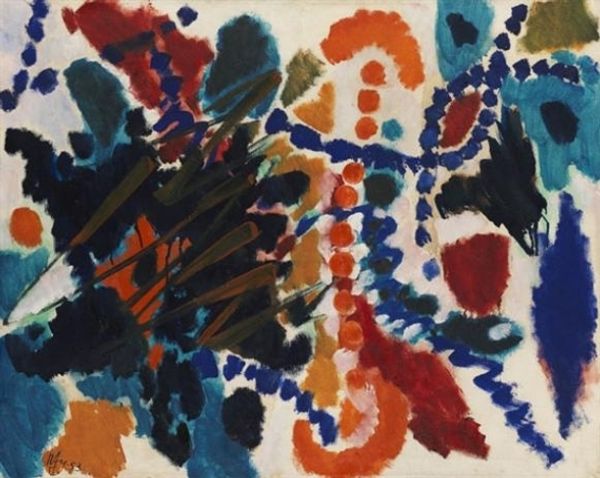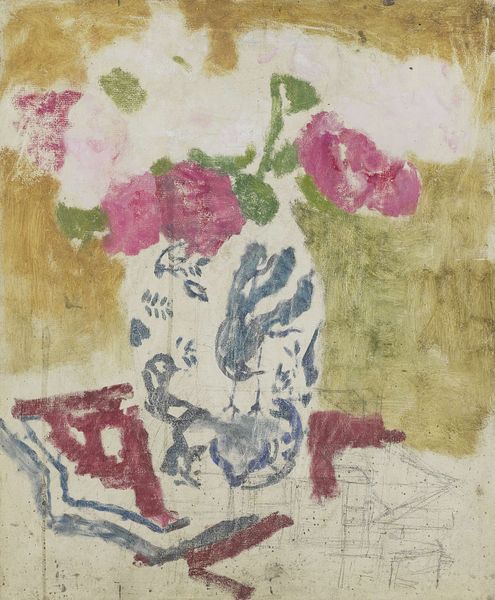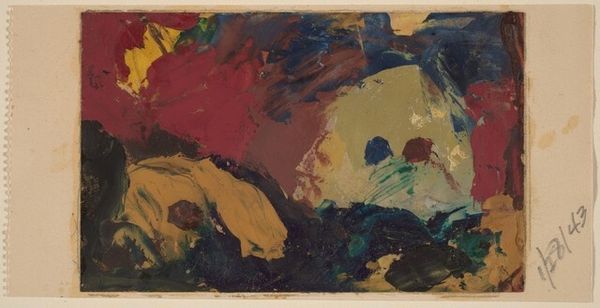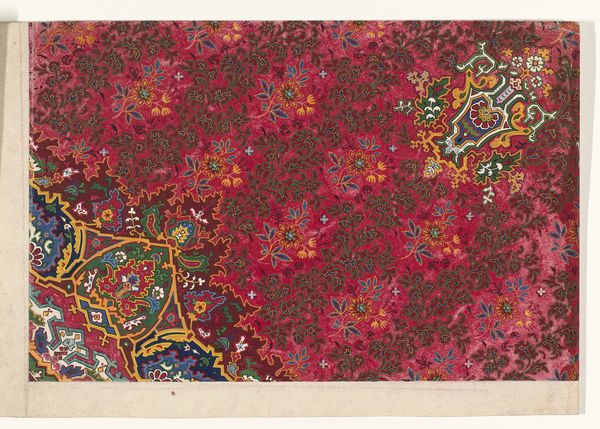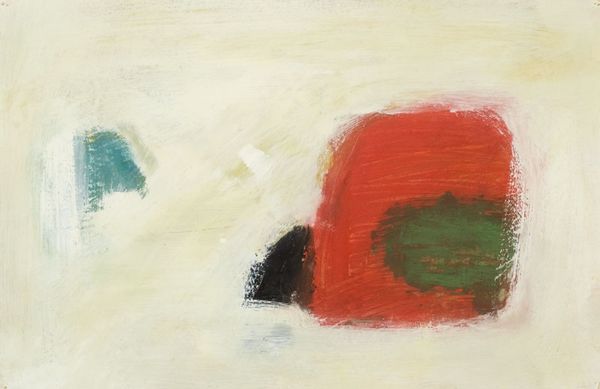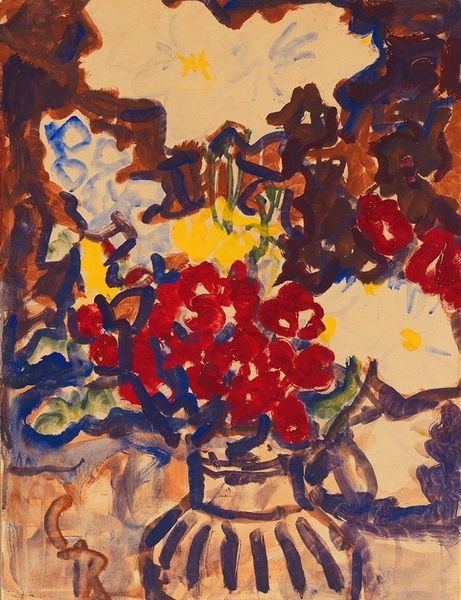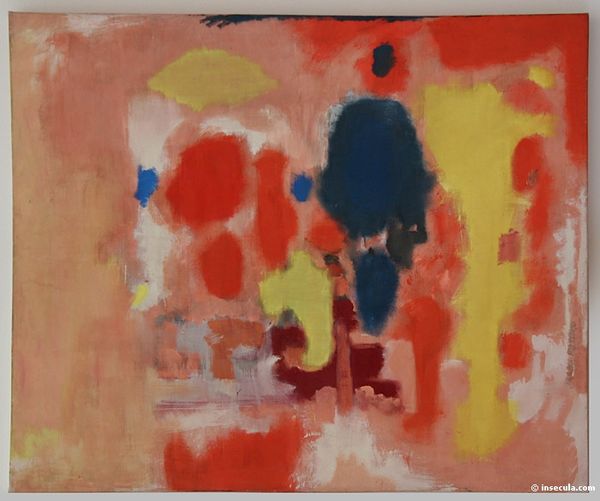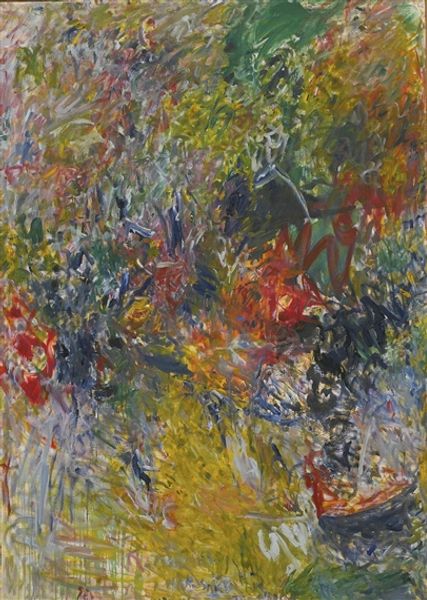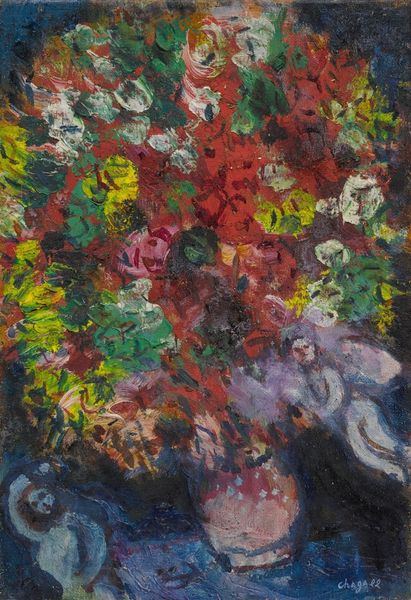
Dimensions: support: 1898 x 2508 mm
Copyright: © Howard Hodgkin | CC-BY-NC-ND 4.0 DEED, Photo: Tate
Editor: Howard Hodgkin's "Come into the Garden, Maud" presents such an intriguing collection of colors and brushstrokes. The texture is fascinating. How do you interpret this work within its historical context? Curator: Hodgkin emerged during a period when abstract expressionism was waning, yet he embraced its emotive power. How do you think the garden as a subject speaks to ideas of cultivated space versus the raw, untamed expression we see in the brushwork? Editor: That’s a great point. I hadn't considered how "garden" implies control, in contrast to the painting's apparent spontaneity. I see it now. Curator: Consider also the public function of gardens, and how their imagery changes depending on the social and political moment. Editor: It’s amazing how much the historical context can change how we see a work of art. Thanks for pointing that out. Curator: Indeed, historical perspective shifts our understanding. Let’s remember, art always reflects the world around it.
Comments
tate 9 months ago
⋮
http://www.tate.org.uk/art/artworks/hodgkin-come-into-the-garden-maud-t12322
Join the conversation
Join millions of artists and users on Artera today and experience the ultimate creative platform.
tate 9 months ago
⋮
Hodgkin’s paintings exist in an indeterminate zone between representation and abstraction. Rather than attempting to express the outward appearance of objects or places the artist attempts instead to communicate a remembered memory from a specific experience. Although the artist always works from memory his compositions, in ways similar to Degas, often demonstrate an interest in the framing effects of the camera. Colour and light are central to Hodgkin’s process and the artist has previously cited Corot, Canaletto, and J.M.W Turner as important influences.
